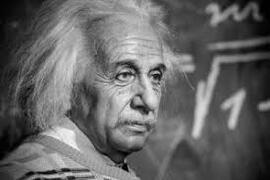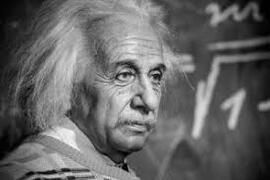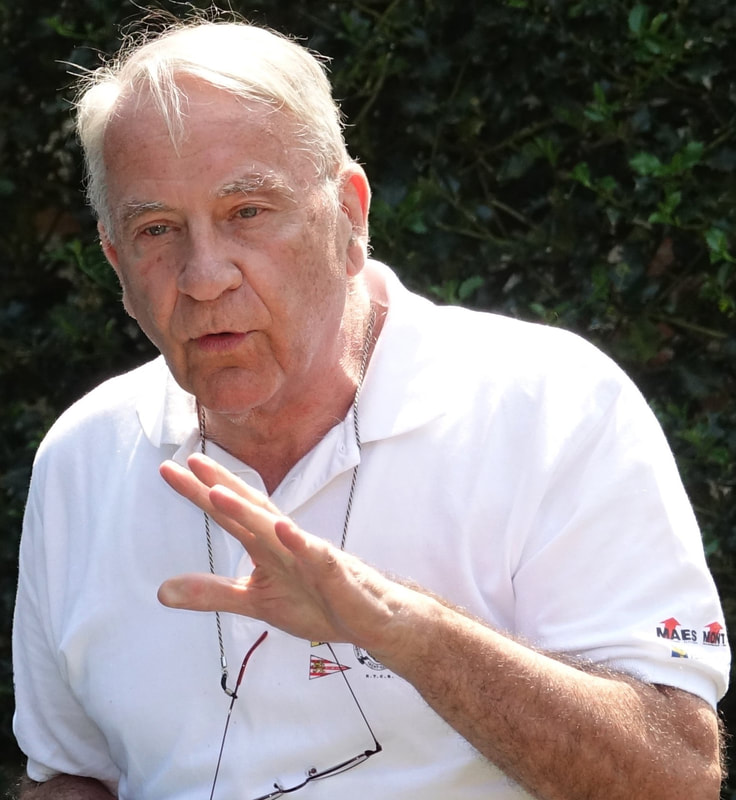- Home
-
Leven
-
Geschriften
- TIE >
- KV >
- PPCM
- TTP >
- TP >
- E >
- EP >
-
NS - Voorreeden
>
- NS_VR01
- NS_VR02
- NS_VR03
- NS_VR04
- NS_VR05
- NS_VR06
- NS_VR07
- NS_VR08
- NS_VR09
- NS_VR10
- NS_VR11
- NS_VR12
- NS_VR13
- NS_VR14
- NS_VR15
- NS_VR16
- NS_VR17
- NS_VR18
- NS_VR19
- NS_VR20
- NS_VR21
- NS_VR22
- NS_VR23
- NS_VR24
- NS_VR25
- NS_VR26
- NS_VR27
- NS_VR28
- NS_VR29
- NS_VR30
- NS_VR31
- NS_VR32
- NS_VR33
- NS_VR34
- NS_VR35
- NS_VR36
- NS_VR37
- NS_VR38
- NS_VR39
- NS_VR40
- NS_VR41
- NS_VR42
- NS_VR43
- Filosofie
- Blog
-
Lezen
-
Omtrent Spinoza
>
- Tolstoi en Spinoza
- Spinoza en schriftvervalsing
- Ieder zijn Spinoza
- Mijn avontuur met het Operaportret
- Over de twee Spinoza's
- Brevieren... in Spinoza
- Boeken die het leven veranderen?
- Spinoza-light
- De bronzen denker aan de Paviljoensgracht in den Haag
- Spinoza en de Schone Letteren
- Benjamin DeCasseres
- Theun de Vries over Spinoza
- De ethiek van Robert Misrahi in het spoor van Spinoza
- Spinoza's Lieux de mémoire
- De tekstdoolhof van Pierre Bayle
- Vermeer en Spinoza
- Gérard de Nerval, romantische naturalist
- Graaf Stanislaus von Dunin-Borkowski S.J., Spinoza-pionier
- Lord Bertrand Russell
- Harold Foster Hallett (1886-1966)
- Het dodenmasker van Spinoza...?
- De Wereldbibliotheek en Spinoza
- Spinoza en het humanisme
- In memoriam Robert Misrahi
- De niet genoemde
- Pierre Bayle: République des Lettres
- Ed Witten, de snaartheorie en Spinoza
- Bibliografie en links
- De interlineaire Spinoza >
-
Omtrent Spinoza
>
- Bibliofilie
- Kalender/Contact
 Einstein (1879-1955) admired Benedictus Spinoza. On November 2, 1920, he visited Spinoza’s house in Rijnsburg (near Leiden, Holland). His signature is in the guestbook. When Einstein was once asked what his views on God were, he replied, "I believe in Spinoza's God who reveals himself in the orderly harmony of what exists, not in a God who concerns himself with the fates and actions of human beings." Incidentally, Spinoza is mentioned more than once in Einstein's texts. There is also a eulogy of Spinoza's Ethics written by Einstein. Perhaps it was written on his visit to Rijnsburg or shortly afterwards. The poem testifies to his interest and admiration for Spinoza and his Magnum Opus.
ExplanationIn his poetry Albert Einstein emphasizes the unique and superhuman thought achievement that Spinoza accomplished in writing down his Ethica, ordine geometrico demonstrata. No one will be able to imitate him, says Einstein. Those who think they can follow in Spinoza's footsteps will likely return from a bare journey. In the last stanza, Einstein suggests that for the higher spiritual life one must be born, understand, be determined. First stanza Einstein loves Spinoza. He has no words for his affection ... this shortage of words is an experience known to everyone. Spinoza had to deal with it occasionally and spoke of a ‘shortage of words.’ Einstein, however, fears that Spinoza, as a thinker and as a human being who lived by his teachings, made an exceptional and hard to match achievement. Second stanza An average person (for Spinoza this is a member of the masses, the crowd, the people) cannot tempt you to a higher spiritual life. Intellectual love for God (amor dei intellectualis) leaves him cold and does not belong in the slightest to his sphere of interest, he is shackled by the materiality of life. Third stanza Ordinary people are not interested in a higher spiritual life: it gives them shivers and leaves them freezing cold. Making room for reason and reason in life is not an option: they are usually guided by fantasy and sentiment. The life of the common man revolves around property, wife, honour, and home: a reference to wealth, sensuality, in the first part of his Treatise on the Emendation of the Intellect (Ref. §1- §16, Bruder). Fourth stanza This situation reminds Einstein of the Baron von Münchhausen, an imaginative novelist who experienced the most wonderful adventures, described in 1785 by Rudolf Erich Raspe. Einstein finds his Münchhausen association somewhat strange and therefore asks the reader for an excuse: to mention the lie baron in the same breath with Spinoza, a passionate truth-seeker is indeed a bit daring. But Einstein simply wants to emphasize that Spinoza's life and achievements in thinking are just as exceptional and (almost) as impossible as the Münchhausen story that is alluded to. Fifth stanza Anyone who now quickly concludes that the teachings of Spinoza can also lift people out of the swamp of life should not miss out: not everyone is reserved for the higher, i.e., not everyone is suitable for setting the true and highest good as the ultimate goal of life. Spinoza did that himself, but not without effort. Anyone can read about it in the above section of the Treatise on the Emendation of the Intellect. The last line of Einstein's poem echoes the very last (not very encouraging) sentence of Spinoza's Ethics, a sentence he (slightly adapted) from Cicero (1st century BC): SED OMNIA PRAECLARA TAM DIFFICILIA QUAM RARA SUNT. |
| Zu Spinozas Ethik Wie lieb ich diesen edlen Mann Mehr als ich mit Worten sagen kann. Doch fürcht ’ich, dass er bleibt allein Mit seinem strahlenden Heiligenschein. So einen armen kleinen Wicht Den führst Du zu der Freiheit nicht. Der amor dei lässt ihn kalt Das Leben zieht ihn mit Gewalt. Die Höhe bringt ihn nichts als Frost Vernunft is für ihn schale Kost Besitz und Weib und Ehr' und Haus Das füllt ihn von oben bis unten aus. Du musst schon gütig mir verzeih’n Wenn hier mir fällt Münchhausen ein, Dem als Einzigen das Kunststück gedieh’n Sich am eigenen Zopf aus dem Sumpf zu zieh’n. Du denkst sein Beispiel zeiget uns eben Was dies Lehre dem Menschen kann geben. Vertraue nicht dem tröstlichen Schein: Zum Erhabenen muss man geboren sein. | Op de Ethica van Spinoza. Wat hou ik van deze nobele man, meer dan ik met woorden zeggen kan. Ik vrees dat hij heel alleen zal blijven in de zijn heilige lichtkrans. Een povere doodgewone sterveling, die zet je niet op weg naar vrijheid. Amor Dei laat zo iemand koud, het aardse leven houdt hem in de ban. Hoogte bezorgt hem niets dan vorst, verstand is hem smakeloze kost, bezit en vrouw en eer en huis, vervullen hem van kop tot teen. Wees zo vriendelijk en vergeef het mij dat ik hier denk aan Münchhausen, de enige die de kunst verstond zich bij zijn pruik uit het moeras te hijsen. Je denkt, zijn voorbeeld leert ons dat de Ethica de mens houvast kan bieden. Maar vertrouw niet op schone schijn: voor het hogere moet men geboren zijn... (© vert. Willy Schuermans - 16.12.20) |
Toelichting
Albert Einstein legt in zijn poëem de nadruk op de unieke en bovenmenselijke denkprestatie die Spinoza volbracht bij het neerschrijven van zijn Ethica, ordine geometrico demonstrata. Niemand zal hem dat kunnen nadoen, meent Einstein. Zij die denken dat ze in Spinoza’s voetsporen kunnen treden zullen allicht van een kale reis thuiskomen. In laatste strofe suggereert Einstein dat men voor het hogere geestesleven moet geboren zijn, versta, gedetermineerd zijn.
Eerste strofe
Einstein houdt van Spinoza. Hij heeft voor zijn affectie geen woorden... dit tekort aan woorden is een ervaring die iedereen bekend is. Spinoza had er ook wel eens mee te maken en sprak dan over een ‘tekort aan woorden’.
Einstein vreest evenwel dat Spinoza als denker en als mens die leefde naar zijn leer, een uitzonderlijke en moeilijk te evenaren prestatie leverde.
Tweede strofe
Een doorsnee mens (voor Spinoza is dit een lidmaat van de massa, de menigte, het volk) kan je niet verleiden tot een hoger geestesleven. Intellectuele liefde tot God (amor dei intellectualis) laat hem koud en behoort in de verste verte niet tot zijn belangstellingsfeer. Hij wordt door de materialiteit van het leven gekluisterd.
Derde strofe
Doorsnee mensen hebben geen belangstelling voor een hoger geestesleven: het bezorgt hen rillingen en laat hen ijskoud. In het leven plaats inruimen voor rede en verstand is geen optie: meestal laten ze zich leiden door fantasie en sentiment. Het leven van de burgerman draait rond bezit, vrouw, eer en huis: een verwijzing naar rijkdom, zingenot, in het eerste gedeelte van zijn Traktaat over de verbetering van het verstand (Bruder-referte §1- §16).
Vierde strofe
Deze situatie doet Einstein denken aan de baron von Münchausen, een fantasierijke romanheld die de meest wonderbaarlijke avonturen beleefde, in 1785 beschreven door Rudolf Erich Raspe. Einstein vindt zijn Münchhausen-associatie wat vreemd en vraagt daarom de lezer om excuus: de leugenbaron in één adem vernoemen met Spinoza, een gepassioneerde waarheidszoeker, is inderdaad wat gewaagd. Maar Einstein wil er gewoon de nadruk op leggen dat het leven en de denkprestaties van Spinoza even uitzonderlijk en (bijna) even onmogelijk zijn als het verhaal van Münchhausen waarop wordt gealludeerd.
Vijfde strofe
Wie nu snel tot het besluit komt dat de leer van Spinoza ook mensen uit het levensmoeras kan ophijsen, moet zich niet mispakken: niet iedereen is voor het hogere weggelegd, d.w.z. niet iedereen is geschikt om het ware en hoogste goed te stellen als ultiem levensdoel. Dat deed Spinoza zelf wel, maar niet zonder inspanning. Iedereen kan het nalezen in het boven genoemde deel van het Traktaat over de verbetering van het verstand.
De laatste versregel van Einsteins gedicht is een echo van de allerlaatste (niet erg bemoedigende) zin van Spinoza’s Ethica, een zin die hij (licht aangepast) ontfutselde aan Cicero (1ste eeuw v.C.):
Eerste strofe
Einstein houdt van Spinoza. Hij heeft voor zijn affectie geen woorden... dit tekort aan woorden is een ervaring die iedereen bekend is. Spinoza had er ook wel eens mee te maken en sprak dan over een ‘tekort aan woorden’.
Einstein vreest evenwel dat Spinoza als denker en als mens die leefde naar zijn leer, een uitzonderlijke en moeilijk te evenaren prestatie leverde.
Tweede strofe
Een doorsnee mens (voor Spinoza is dit een lidmaat van de massa, de menigte, het volk) kan je niet verleiden tot een hoger geestesleven. Intellectuele liefde tot God (amor dei intellectualis) laat hem koud en behoort in de verste verte niet tot zijn belangstellingsfeer. Hij wordt door de materialiteit van het leven gekluisterd.
Derde strofe
Doorsnee mensen hebben geen belangstelling voor een hoger geestesleven: het bezorgt hen rillingen en laat hen ijskoud. In het leven plaats inruimen voor rede en verstand is geen optie: meestal laten ze zich leiden door fantasie en sentiment. Het leven van de burgerman draait rond bezit, vrouw, eer en huis: een verwijzing naar rijkdom, zingenot, in het eerste gedeelte van zijn Traktaat over de verbetering van het verstand (Bruder-referte §1- §16).
Vierde strofe
Deze situatie doet Einstein denken aan de baron von Münchausen, een fantasierijke romanheld die de meest wonderbaarlijke avonturen beleefde, in 1785 beschreven door Rudolf Erich Raspe. Einstein vindt zijn Münchhausen-associatie wat vreemd en vraagt daarom de lezer om excuus: de leugenbaron in één adem vernoemen met Spinoza, een gepassioneerde waarheidszoeker, is inderdaad wat gewaagd. Maar Einstein wil er gewoon de nadruk op leggen dat het leven en de denkprestaties van Spinoza even uitzonderlijk en (bijna) even onmogelijk zijn als het verhaal van Münchhausen waarop wordt gealludeerd.
Vijfde strofe
Wie nu snel tot het besluit komt dat de leer van Spinoza ook mensen uit het levensmoeras kan ophijsen, moet zich niet mispakken: niet iedereen is voor het hogere weggelegd, d.w.z. niet iedereen is geschikt om het ware en hoogste goed te stellen als ultiem levensdoel. Dat deed Spinoza zelf wel, maar niet zonder inspanning. Iedereen kan het nalezen in het boven genoemde deel van het Traktaat over de verbetering van het verstand.
De laatste versregel van Einsteins gedicht is een echo van de allerlaatste (niet erg bemoedigende) zin van Spinoza’s Ethica, een zin die hij (licht aangepast) ontfutselde aan Cicero (1ste eeuw v.C.):
SED OMNIA PRAECLARA TAM DIFFICILIA QUAM RARA SUNT.
(Al wat de moeite waard is even moeilijk als zeldzaam)
Auteur
Willy Schuermans
Spinoza, und kein Ende...?
(...) uitgaande van den gezonden stelregel, dat men zich niet boven SPINOZA verheven moet achten voor en aleer men hem begrepen heeft.
Willem Meijer (1903)
Willem Meijer (1903)
SKL (Spinoza kring Lier)
Platform voor de studie en de verspreiding van het gedachtegoed van Benedictus Spinoza (1632-1677)
Platform voor de studie en de verspreiding van het gedachtegoed van Benedictus Spinoza (1632-1677)
Doorzoek de hele blog alfabetisch op titels en persoonsnamen.
Categorieën
Alles
Bento's Koekjes
English
Essays
Filosofen Vandaag
In De Marge
Recensies
René Descartes
Spinozana
Spinoza's Filosofie
Te Gast
Foutje ontdekt in een blogbericht? Meld het op
[email protected]
[email protected]



